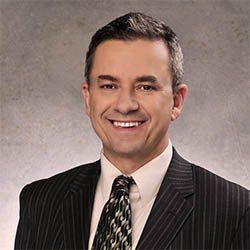A Slowdown on the Horizon?

Is the Fed done raising interest rates?
In just one short week, the S&P 500 added more than 5%, and the Dow more than 1,600 points. It was not just one indicator that led to this surge, but a confluence of events and indicators that provided more convincing that the Fed is done with interest rate increases. This is consistent with the Eye on the Economy call made back in June, that the chance for any additional Fed hikes for the rest of the year would be doubtful. Next year is to be determined. For now, we can expect an extended pause in rates.
Market pricing places a high probability of a hold in rate increases until May 2024, when the odds favor the first rate cut. Several factors are contributing to this market sentiment. First, more evidence surfaced that the economy may be entering a cooling phase, despite the blockbuster 3rd quarter GDP report. GDP increased by almost 5%, an above normal rate of growth, but we must remember that GDP is backward looking. Last Friday’s national employment report showed that the economy added 150,000 jobs in October, short of the 180,000-consensus forecast. Looking under the hood, the private sector economy only added just over 100,000 jobs. More than 1/3 of job gains came in the government sector, adding 51,000 jobs. Additionally, the strong payroll gains of August and September were less than originally expected. Revisions wiped away 101,000 of these payrolls.
The household survey component of the report showed an overall decline in employment of 348,000, and a decline in the labor force. The number of unemployed increased by 146,000, pushing the nation’s unemployment rate to 3.9%, representing a ½ percent increase since the year low rate of 3.4%. Altogether, the report showed an overall softening in the nation’s labor market, a marked decline from the job gains observed over 2022, and earlier this year.
Other signs of a pending slowdown came from a national survey on manufacturing. The report indicated another contraction for manufacturing, more than the consensus forecast. The survey pointed to reduced new orders and order backlogs and declining employment. A sampling of respondent comments: “Economy absolutely slowing down”, “Seeing a slowdown in bookings”, and a “Slow fourth quarter”.
The slowdowns in some parts of the economy are counterbalanced by the resilient consumer. The last report on retail sales was very strong, more than what had been expected. Unfortunately, the robust consumer spending that we’ve been observing will gradually begin to cool down. High interest rates, overall higher prices, including the cost of shelter, and approaching labor market softness will finally begin to curtail consumer activity. Beyond that, the significant pickup in consumer spending that the economy observed due to government stimulus and pandemic-induced behavioral changes will gradually bring the consumer back to earth. It is only a matter of time.
Some clues and evidence on a softening consumer economy are beginning to emerge. The household debt ratio has moderated since December of last year but remains higher than pre-pandemic levels. Consumers have been using debt to finance some of this spending, and this is not sustainable. Delinquency rates on consumer loans and credit cards are now higher than levels that existed just before the pandemic.
Auto loan delinquency rates are also higher than levels that existed at the start of the pandemic. Mortgage delinquencies have also been climbing, but still lower than levels of 2020. Discretionary spending at food and beverage places, arguably a leading consumer indicator, is beginning to show some erosion. Credit card transactions, as provided by the Bureau of Economic Analysis, on food services and drinking places have noticeably declined in activity since August.
It is premature to call a recession at this point. While some consumer red flags are beginning to emerge, the household sector is still stronger today than prior to the pandemic. Higher net worth levels from housing values and equity markets will serve as a buffer for any slowdown. The next three months will contain some valuable indicators on the economy’s trajectory in 2024. As of today, a slowdown may be on the horizon.
Uric Dufrene is president elect of FEI Louisville and is the Sanders Chair in Business at Indiana University Southeast.
More FEI Louisville News











